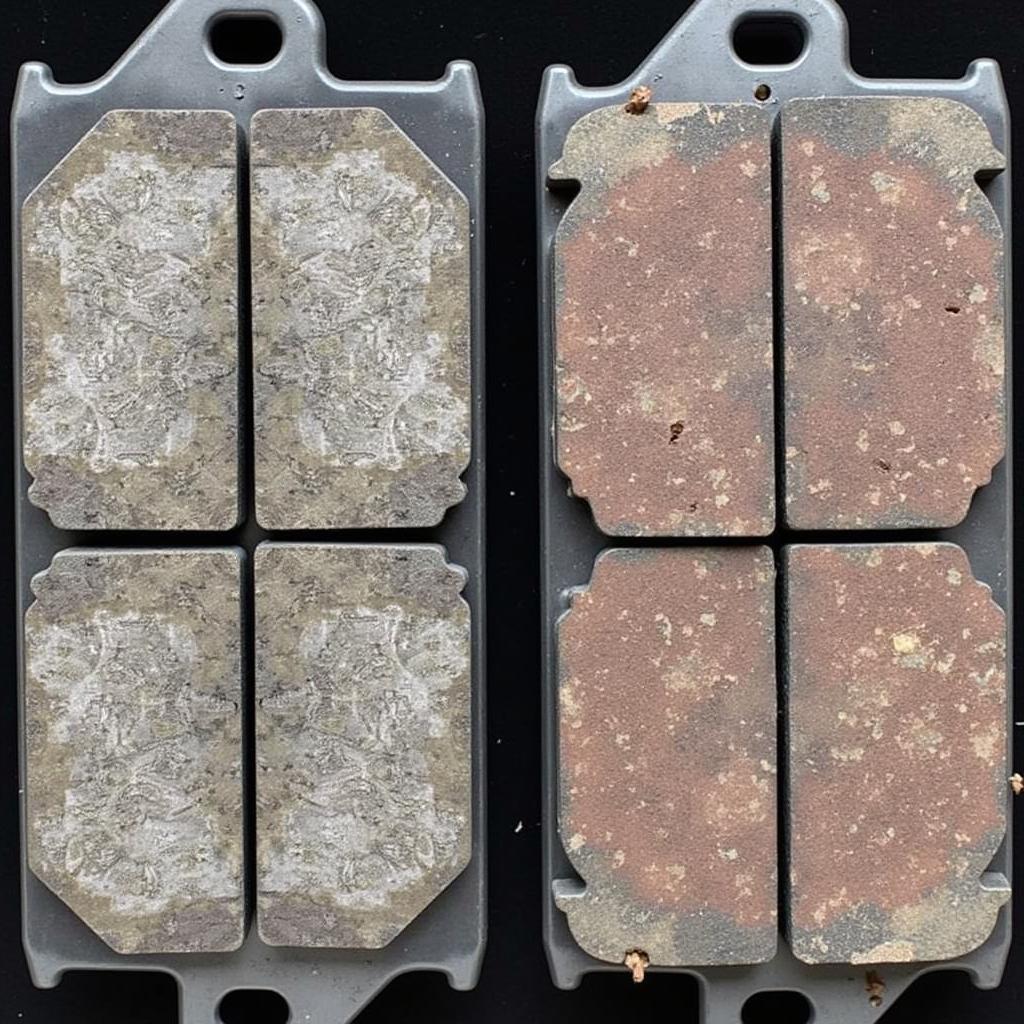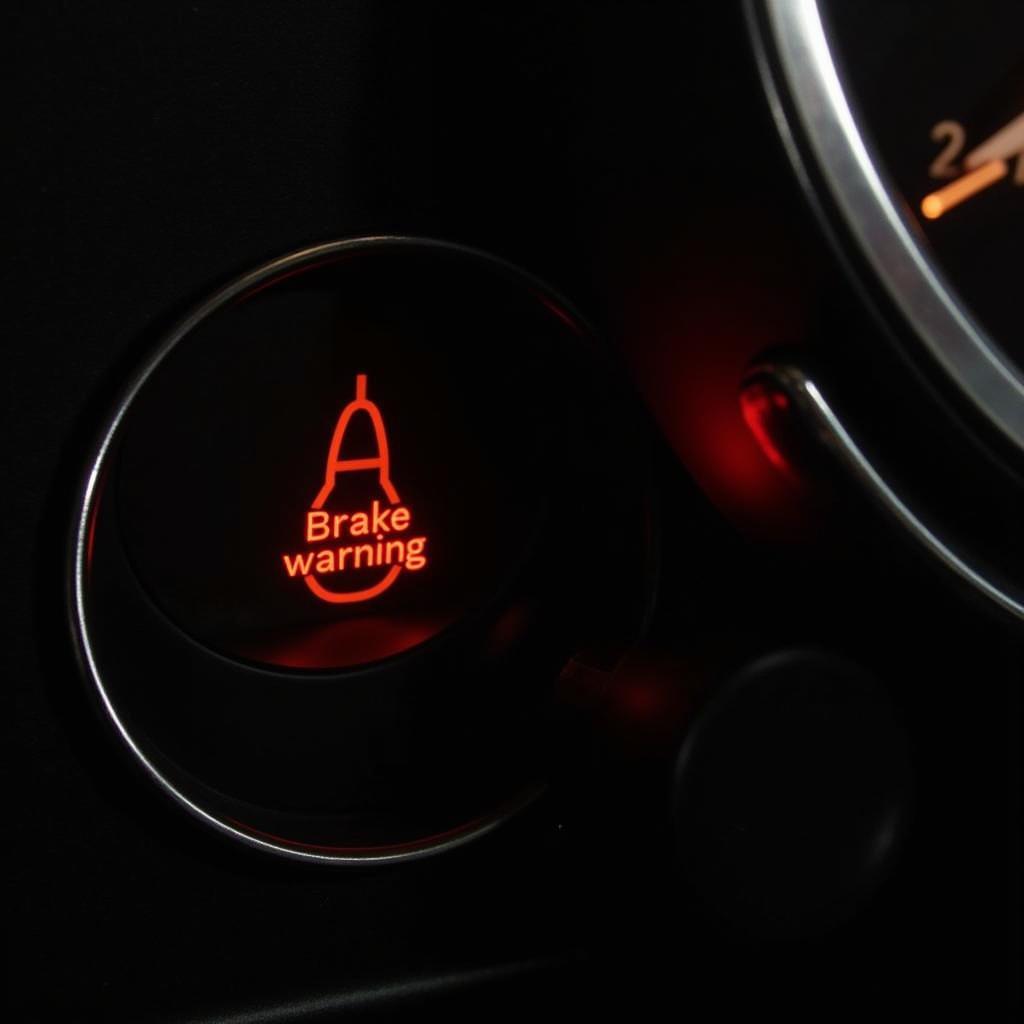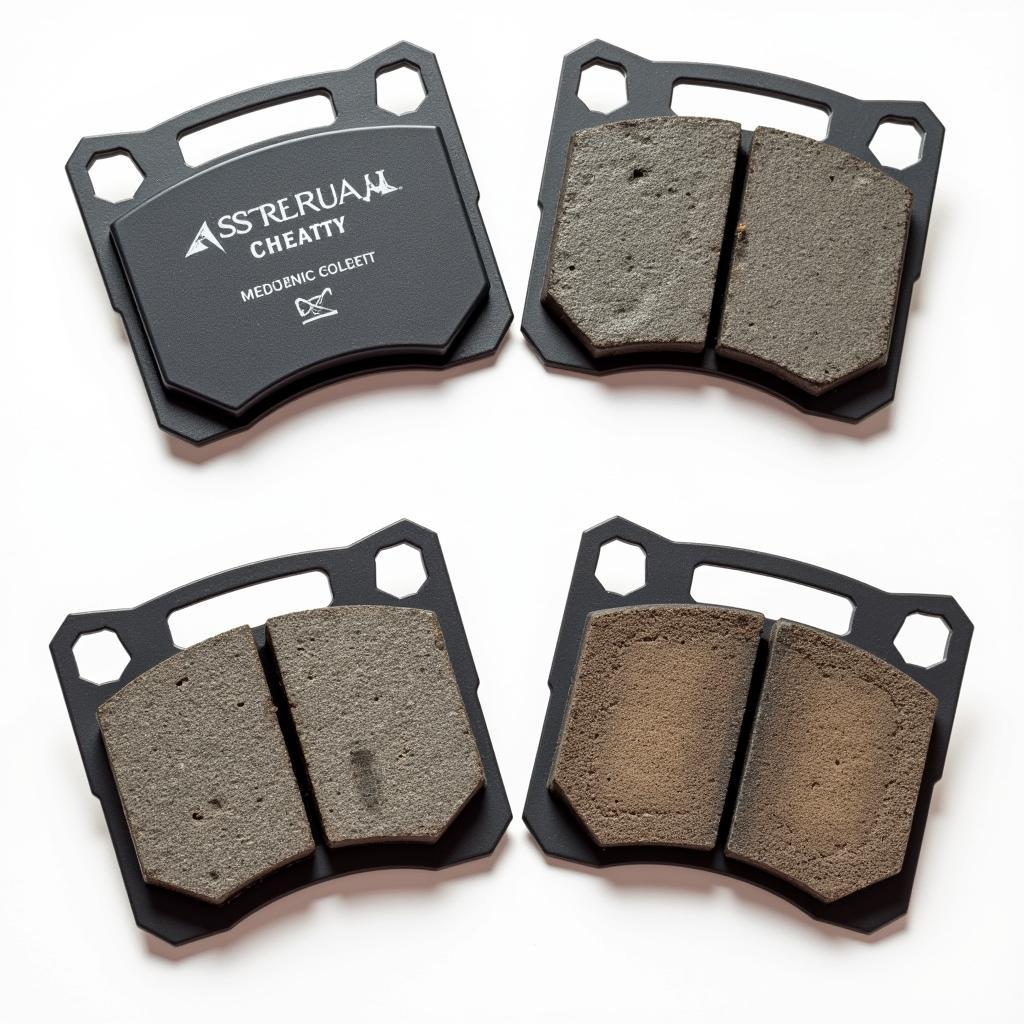A glowing brake warning light on your Volkswagen Jetta’s dashboard is a clear signal that something needs attention. While it can be alarming, understanding the common culprits behind this illuminated warning can help you address the issue promptly and safely. This comprehensive guide explores the potential reasons behind a brake warning light on your Jetta and provides insights into resolving them.
Decoding the Brake Warning Light
The brake warning light, often depicted as a circled exclamation mark (!) or the word “BRAKE,” serves as your Jetta’s primary communication method for brake system issues. When illuminated, it indicates one or more of the following:
- Engaged Parking Brake: A simple yet often overlooked reason is an engaged parking brake. Ensure it’s fully released before proceeding.
- Low Brake Fluid Level: This is a critical issue, as brake fluid is essential for proper braking function. A leak in the system can lead to a dangerous drop in fluid levels.
- Worn Brake Pads: Your Jetta’s brake pads are equipped with wear indicators that trigger the warning light when they reach a certain thinness.
- Faulty Brake Light Switch: The brake light switch activates your brake lights when you press the pedal. A malfunctioning switch can disrupt this process and illuminate the warning light.
- ABS Problem: While less common, a fault within the Anti-lock Braking System (ABS) can also trigger the brake warning light. This typically accompanies an ABS warning light.
Troubleshooting Common Causes
Before heading to a mechanic, there are a few checks you can perform yourself:
1. Check Your Parking Brake
Ensure your parking brake is fully disengaged. Even a slightly engaged parking brake can trigger the warning light.
2. Inspect Brake Fluid Level
Locate the brake fluid reservoir under the hood. The reservoir will have “MIN” and “MAX” markings. If the fluid level is below the “MIN” mark, it’s crucial to add the correct type of brake fluid as specified in your Jetta’s owner’s manual. Driving with low brake fluid is extremely dangerous and can lead to brake failure.
 Worn Brake Pads on a Volkswagen Jetta
Worn Brake Pads on a Volkswagen Jetta
3. Examine Brake Pads
Visually inspect your brake pads through the spaces between your Jetta’s wheels and the brake calipers. If the pads appear significantly thinner than the surrounding metal, they likely require replacement.
Important: If you’re uncomfortable performing these checks or suspect a more serious issue, it’s crucial to consult a qualified mechanic immediately.
When Professional Diagnosis is Necessary
While the above steps can help address some common causes, many instances require the expertise of a trained technician.
“Ignoring a brake warning light can be incredibly risky,” warns Jason Carter, a seasoned automotive electrician with over 15 years of experience. “Modern cars like the Jetta rely on complex electronic systems, and a seemingly minor issue can quickly escalate into a major safety concern if left unchecked.”
Here are situations where professional intervention is essential:
- The warning light remains illuminated even after adding brake fluid. This suggests a leak in the system, which needs immediate attention.
- You notice a soft or spongy brake pedal feel. This could indicate air in the brake lines or a failing master cylinder.
- You hear unusual noises like grinding or squealing when braking. These sounds often point to worn brake components requiring replacement.
- The ABS warning light illuminates alongside the brake warning light. This signifies a potential issue within the ABS system.
Seeking Remote Diagnostic and Programming Solutions
In today’s digitally connected world, remote diagnostics and programming services offer a convenient and efficient solution for certain brake warning light issues. Utilizing specialized software and equipment, expert technicians can remotely access your Jetta’s onboard computer system to:
- Retrieve and analyze diagnostic trouble codes (DTCs). These codes provide specific insights into the nature and location of the brake system fault.
- Perform software updates and calibrations. In some cases, a simple software update or calibration can resolve the issue.
Remote diagnostics and programming services can be particularly beneficial for:
- Confirming the need for specific repairs: This can help you avoid unnecessary component replacements and save on costs.
- Addressing software-related issues: This eliminates the need for physical visits for certain software updates.
However, it’s important to note that not all brake warning light issues can be resolved remotely. Problems requiring physical repairs or component replacements will necessitate a visit to a qualified mechanic.
Conclusion
A glowing brake warning light in your Volkswagen Jetta should never be ignored. By understanding the common causes, performing basic checks, and seeking professional help when needed, you can ensure your safety and keep your Jetta running smoothly.
Remember: Your brakes are your vehicle’s most crucial safety feature. When in doubt, always err on the side of caution and seek professional assistance.
FAQs
Q: Can I drive my Jetta with the brake warning light on?
A: It’s highly discouraged. Driving with an illuminated brake warning light could be dangerous. It’s crucial to diagnose and address the issue as soon as possible.
Q: How often should I change my Jetta’s brake pads?
A: Brake pad lifespan varies depending on driving conditions and habits. As a general rule, have them inspected every 10,000 miles and replace them when they reach the recommended thickness.
Q: How much does it cost to fix a brake warning light on a Jetta?
A: Repair costs depend on the underlying cause. Simple fixes like topping off brake fluid are inexpensive, while major repairs like replacing the master cylinder can be significantly more expensive.
Q: Can a low battery cause the brake warning light to come on?
A: While rare, a severely low battery can sometimes disrupt the vehicle’s electrical system, potentially triggering the brake warning light. It’s best to have your battery and charging system checked if you suspect an issue.
Q: How can I prevent future brake warning light issues?
A: Regular vehicle maintenance, including brake fluid flushes, brake pad replacements, and inspections, is key to preventing future brake problems. Additionally, be mindful of your driving habits and avoid hard braking whenever possible.


